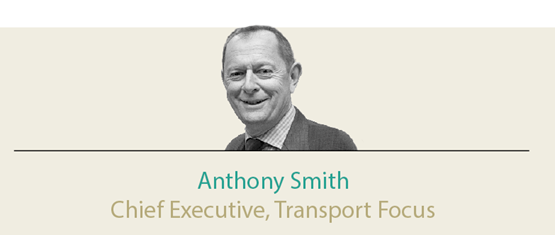
Trust matters. It is the thing that oils most personal and business relationships. Forget what the contract says - the feeling of trust between consumers and companies is key. Companies that lose that trust can spend years regaining it.
Companies that have it will be cut some slack by consumers in difficult situations.
The rail industry is no different. The 2014 groundbreaking work on trust, Passengers’ Relationship with the Rail Industry, which we have just refreshed, showed the crucial importance of a reliable service as the keystone on which effective communication with passengers can be built. For a whole host of reasons, the train companies which are more trusted are getting their messages direct to passengers. The bigger commuter train companies, in London and the South East in particular, have a harder job. Passengers are generally getting their information about the company from the media - not the best starting point?
Social media represents the best opportunity train companies have for getting their messages across to passengers away from the magnifying lens of the traditional media. The ability to respond to and tailor information for individual passengers during times of disruption is unparalleled. The chance to say everything is running well, which Transport for London does often, is there. The spreading of good news stories and events is on tap. The opportunity to tell people about upcoming disruption, away from the crowded, noisy, environments of stations, is there.
However, every great opportunity contains an equal threat. Train companies run 18-hour (or more) operations every day. Thousands of stations and trains have thousands of staff whom management cannot ever get together in one place - passengers will also have contact with many staff who do not work for your train company. The actions of your dispersed staff and operations will be laid bare by social media for all to see. Good, as you can see what is really going on. And not so good, as controlling the message can be very difficult.
Is this any different to other crisis management situations?
Two rules always apply. Show you care and are in control. United Airlines failed on both counts. It could have limited the damage and started to show it cared by how it dealt with the situation. You will not have much time to think, but the cruel discipline of the 120-or-so Twitter characters will force you to be concise! Tone is crucial, as our report Short and Tweet: How passengers want social media during disruption showed. Tricky for hierarchical corporations, but you have to let your staff speak it as they want to.
Do not be misled into thinking that the traffic on social media is in any way representative. Transport Focus’ National Rail Passenger Survey (NRPS) gives a snapshot of rail journeys across 20 weeks a year, and the autumn 2016 wave contained the views of more than 55,000 passengers.
We now have 15 years’ worth of data. This represents a very powerful picture of passenger opinion that can be broken down by routes, gender, age and many other ways. It is all available on our website. Yes, the results can sometimes look different to other surveys, but there is a very good reason why. It is asking different things of a representative sample of users in a different way to other surveys.
The NRPS focuses on the journey the passenger has just undertaken. This is deliberate - it produces rich, useful data that the train companies can act on. The results shift around showing that such action has an effect and can be recorded. Other surveys ask more generalised questions about train companies, but there is no check that anyone has even used the companies in question or they are describing the right company. We double-check all of this.
However, what is interesting is that the results of other surveys equate quite closely to our own work on trust - a much more generalised and vaguer feeling which is, nonetheless, important. So we have a good feeling for a snapshot view of passenger opinion, trust and priorities for improvement. This probably adds up to the richest view of passenger satisfaction in the world.
We are developing an app to track how passengers feel about journeys, and hope to develop this further with a view to positioning this inbetween NRPS and social media. Quicker feedback, but with more representativeness.
The railway industry clearly has a lot to teach other industries about social media - Northern gets more tweets each day than British Gas! Time for a conference demonstrating this learning and experience?











